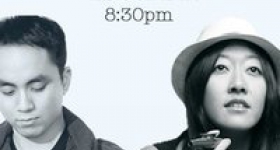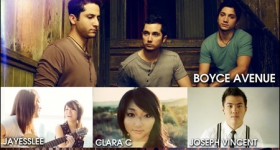Dear InterrogAsian,
What was “Turning Japanese” about anyway? I heard it was about jacking off.
— ’80s Baby
Released in 1980, “Turning Japanese” was a catchy punk-pop number by a British band, The Vapors. It was produced by Vic Coppersmith-Heaven and became a worldwide hit. It opened with the stereotypical Oriental Riff (more on that later), contained bizarre lyrics (“I want a doctor to take your picture so I can look at you from inside as well”) and had little to do with Japanese culture. The video, however, featured geishas, samurai swordsmen and the band — all cavorting in rice-paper screened rooms.
Deciphering “Turning Japanese” isn’t as simple as “polishing the bayonet” until your eyes squint. As The Vapors’ David Fenton described to VH1, it’s simply a song addressing “all the clichés about angst and youth and turning into something you didn’t expect to.” Asians at the time didn’t know what to make of the song and mostly shrugged. But one garage band, Teenage Radiation, recorded an answer record, “Turning Hakujin,” that got a spin on the Dr. Demento show.
Now about that “Oriental Riff” — that trilling nine-note melody heard in Carl Douglas’ “Kung Fu Fighting,” Rush’s “A Passage to Bangkok,” David Bowie’s “China Girl” — or whenever an Oriental caricature has stepped into frame onscreen. According to some, the trope can be traced back to the 1800s via “Aladdin Quick Step,” can be heard in Orientalist novelty songs of the 1940s and has been bandied about ever since. A fellow named Martin Nilsson provides an in-depth investigation on the sound’s origins, starting when Jackie Chan and Michael Hui appeared in Cannonball Run. Check it out: chinoiserie.atspace.com.
Dear InterrogAsian,
I’m a Chinese-Korean American student at the University of California, Los Angeles, and I’m confused about whether stereotypes are good or bad. My Asian American courses all say the same thing: Stereotypes, negative or positive, are generally bad. From reading AngryAsian Man.com and Disgrasian.com, which I love, I’ve come to believe that all stereotypes, if not used in comedic parodies, are downright horrible and ignorant. So, after watching some racist YouTube videos, I posted a Facebook note on the subject. Surprisingly, two of my friends completely disagreed! I was at a loss for words when a Mexican American friend strongly defended stereotypes, saying that they’re all rooted in truth. In addition, a Vietnamese American friend also didn’t mind the stereotypes! Am I the only one who truly believes stereotypes are horrible?! I feel so alone here!
— Confused Asia-lone Bruin
Racism is one confusing concept, ain’t it? Richard Pryor addressed stereotypes all the time, but his bit making fun of Chinese restaurant workers could have the most super-righteous AzNs squirting Yogloo out their noses. Why? He did it out of love. Or how about Clint Eastwood’s Gran Torino character, who won our empathy despite being a racist bastard? It helps to understand the purpose of any stereotype being presented — is it to demean? To make a valid point?
There is no preset limit on offensive stimuli. Go with your instinct: If it offends you, it probably offends 100 people like you. As Michael Jackson said, you are not alone. Call out racists on their shit; that’ll leave you feeling a lot more empowered than posting about it on Facebook.
Don’t know Charlyne Yi from Yi Jianlian? Send your questions about Asian culture to interrogasian [at] hyphenmagazine.com.









Comments